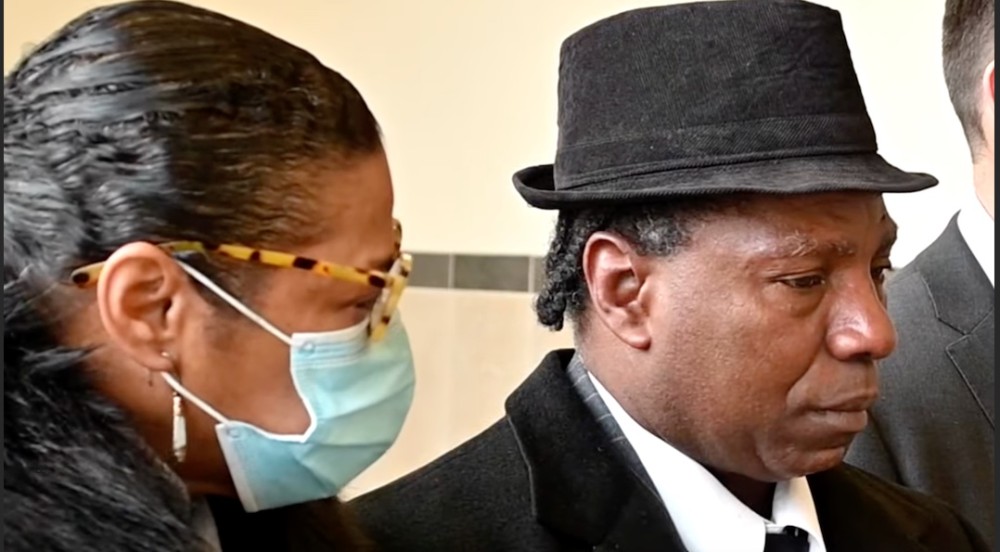Anthony Broadwater, who spent 16 years in prison after author Alice Sebold accused him of raping her while she was a student at Syracuse University, has been fully exonerated, reports the New York Times.
A state judge along with Broadwater’s legal team, and the Onondaga County district attorney agreed that the case levied against him was tremendously flawed.
In 1999, Sebold graphically detailed a rape that she accused Broadwater of committing in her book titled Lucky which garnered her international acclaim.
"I've been crying tears of joy and relief the last couple of days," Broadwater said of the court’s decision. "I'm so elated, the cold can't even keep me cold."
Broadwater, who has always maintained his innocence, described experiencing the stigma of being known as a sex offender while trying to rebuild his life after being released from prison in 1998.
“On my two hands, I can count the people that allowed me to grace their homes and dinners, and I don’t get past 10,” he said. “That’s very traumatic to me.”
Broadwater’s lawyers, David Hammond and Melissa K. Swartz argued that the case weighed heavily on Sebold’s identification of Broadwater in the courtroom and a now-discredited method of microscopic hair analysis. Additionally, the attorneys claimed that “prosecutorial misconduct” was a major factor during the police lineup and the prosecutor lied to Sebold saying that Broadwater and the man next to him were friends who intentionally appeared in the lineup together to mislead her. The police lineup would later influence Sebold’s later testimony.
William J. Fitzpatrick, Onondaga County District Attorney who led the motion to vacate the conviction, said that witness identifications of strangers, especially across racial lines, are usually unreliable.
“I’m not going to sully these proceedings by saying, ‘I’m sorry,’” Fitzpatrick said in court on Monday. “That doesn’t cut it. This should never have happened.”
A film adaptation of Lucky unknowingly raised doubts about Broadwater's conviction.
Timothy Mucciante, an executive producer of the film, began to question Sebold’s story earlier this year after he noticed some glaring discrepancies between the script and the memoir.
“I started having some doubts, not about the story that Alice told about her assault, which was tragic, but the second part of her book about the trial, which didn’t hang together,” Mucciante said in an interview.
Eventually, Mucciante would leave the production in June because of how the case was being portrayed.
Mucciante hired Dan Myers, a private investigator who spent 20 years working for the Onondaga County Sheriff’s Office. Myers examined Broadwater’s case and was convinced that he was innocent.
Myers suggested that a lawyer should review the evidence and recommended Hammond, who believed they had a strong case. Broadwater hired Hammond as his attorney around the same time.
During the time of his arrest, Broadwater was home on leave from the Marine Corps, visiting his family. He was just 20 years old.
“I just hope and pray that maybe Ms. Sebold will come forward and say, ‘Hey, I made a grave mistake,’ and give me an apology,” Broadwater said.
“I sympathize with her,” he said. “But she was wrong.”













